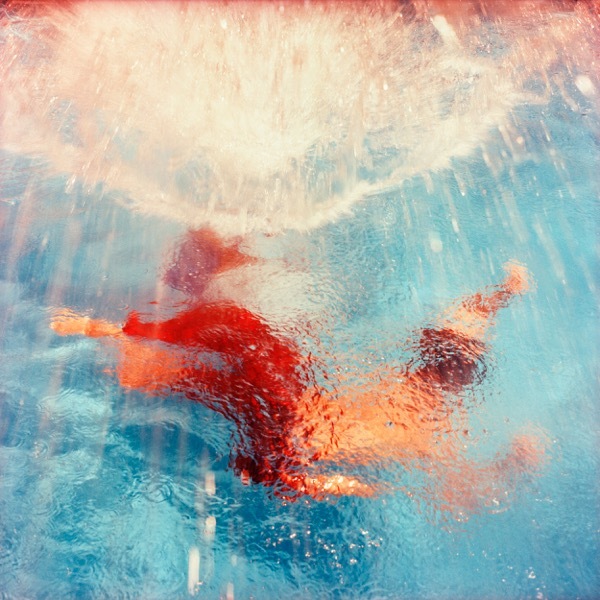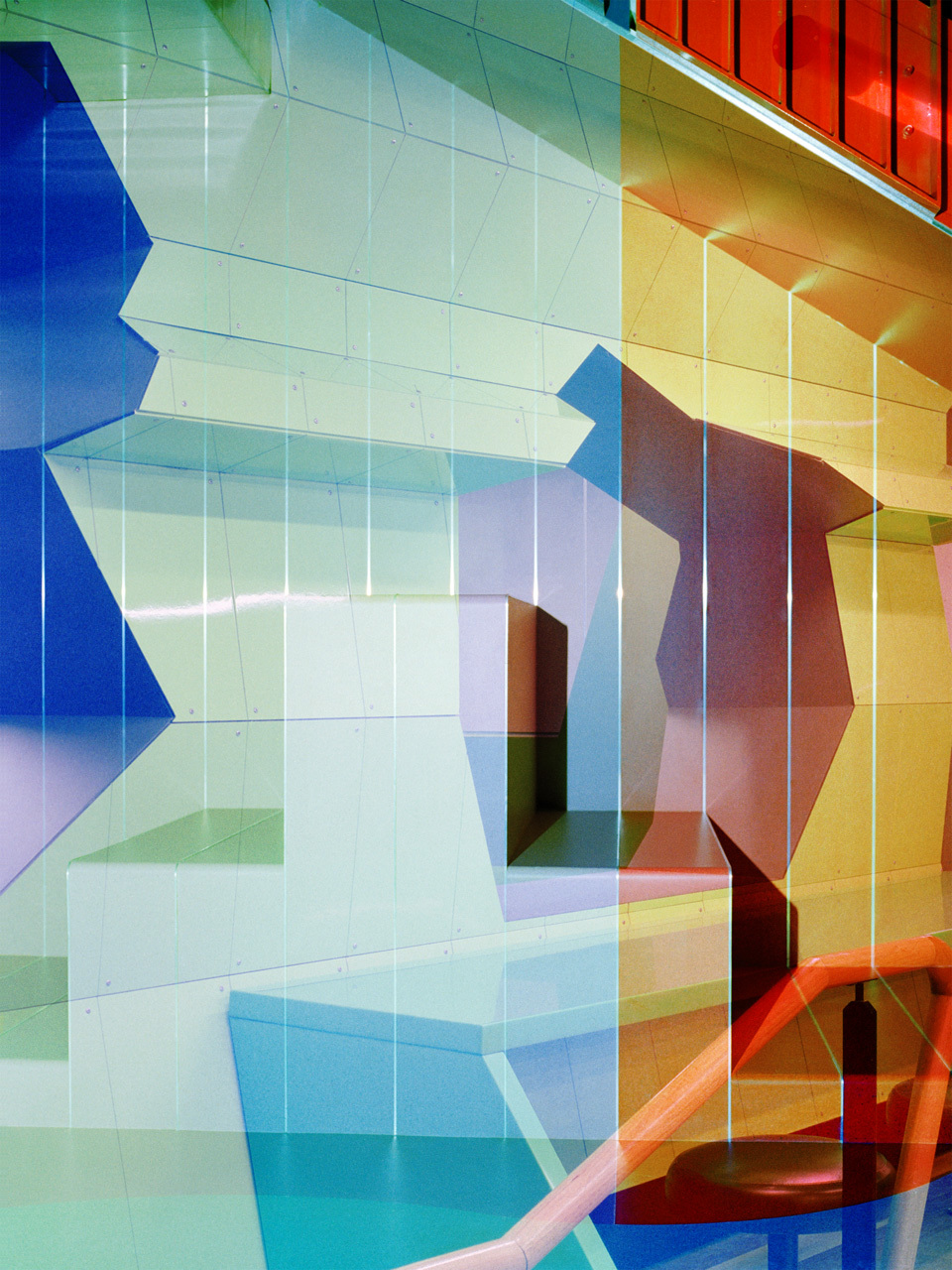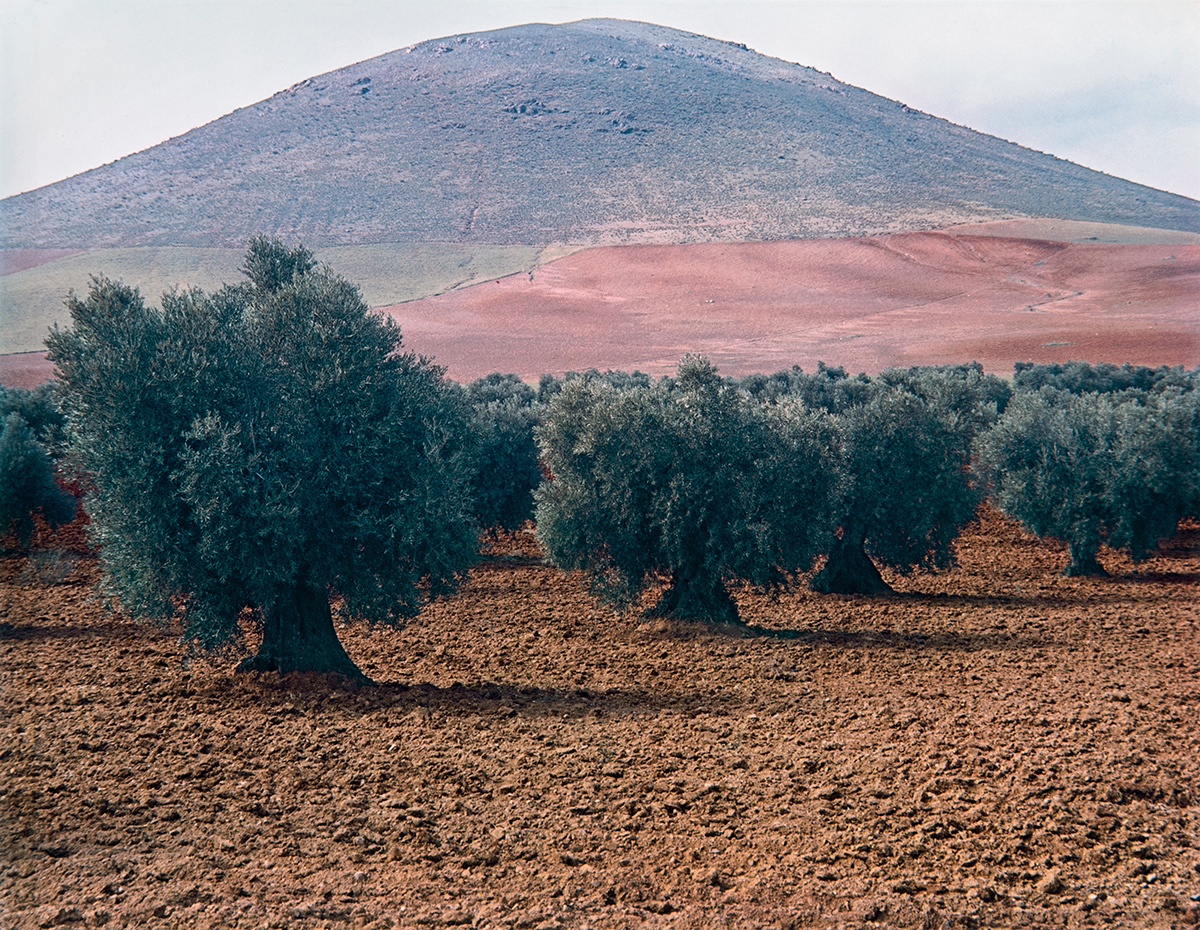Elisabeth Biondi
12. Oktober 2018

Karine Laval, Poolscapes #71 from her book »Poolscapes« (Steidl Verlag) © Karine Laval
12. Oktober 2018
»My imagination refuses to stretch as far as to envision photography in 2050. Rather than speculating about it, I want to reflect on photography in the 1970’s when I started working for magazines, and photography now. Photography, as all art does, reflects changes in society and visuals in turn attempt to leave their mark on society, at least up to a point. It is an ongoing process. These days, changes come fast and furiously—therefore my hesitation to look too far into the future.

Then, in 1970’s photography was primarily analog. Photographers/artists created what we now call ‘classical’ photographs. To this day and in years to come, classical photography will always have its place in the visual world, even in 2050. On the other hand, digitalization has changed photography radically; images are ubiquitous, they no longer need to be lens-based, they can be altered, appropriated, videos, installations, AI and VR, all are part of contemporary photography. What we see and how we view visuals has vastly expanded. Each year photography is more inclusive with fewer restrictions and future technology will empower photographers to further expand of their imagination. Who can know where it will be in 2050?

I chose a classical landscape by Evelyn Hofer of the time when I started my work in photography and two images by contemporary photographers/artists Karine Laval and Andrea Gruetzner whose work is not avangard but contemporary: future classics?«
Elisabeth Biondi war 15 Jahre verantwortlich für die Bildsprache des renommierten Magazins The New Yorker, bis sie 2011 begann, als unabhängige Kuratorin, Autorin und Dozentin zu arbeiten. Geboren und ausgebildet in Deutschland, begann Biondi ihre Karriere beim Magazin Geo, bevor sie als Chefin der Bildredaktion bei Vanity Fair und Stern tätig war.